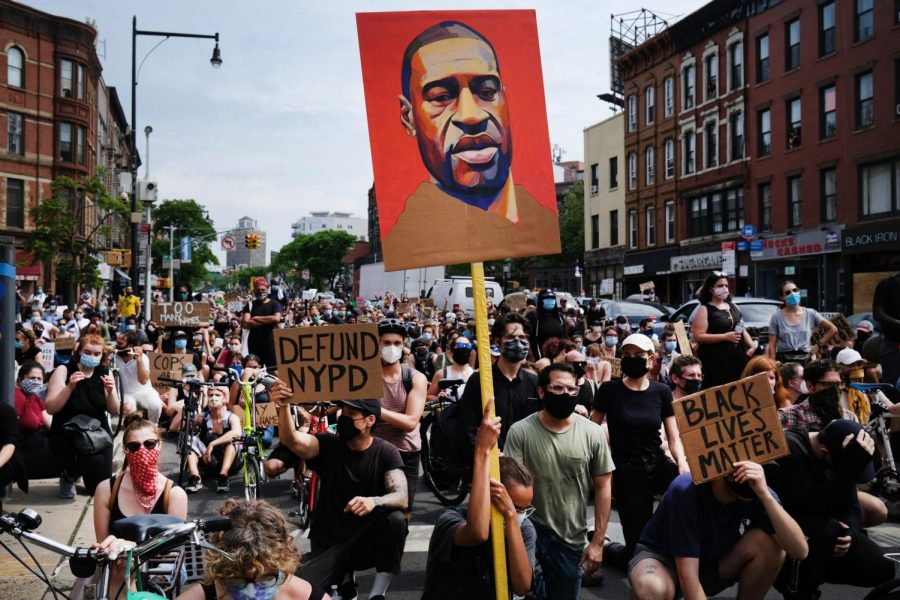Former supervisor testifies against Derek Chauvin in ongoing trial
April 8, 2021
Police officials from the Minneapolis Police Department, which has including the city’s police chief, have testified that former officer Derek Chauvin’s use of force against George Floyd was unnecessary and violated policy and training protocols. On May 25, 2020, a black man named George Floyd had the police called on him for supposedly giving counterfeit money to the cashier at a store where he purchased something. Bystanders had taken video of George Floyd being pinned to the ground by Derek Chauvin who then kneeled on his neck, refusing to get off while Floyd kept repeating the phrase, “I can’t breathe.” 45-year-old George Floyd eventually died upon his arrival to the hospital, and it started massive protests to get justice for him and other innocent black people who were victims of police brutality.
Now, Derek Chauvin, a former police officer, sits in court being charged with murder and manslaughter. On April 5, Derek’s former supervisor, Sgt. David Pledger testified against him during his murder trial in the killing of Floyd. David said he “vehemently disagreed” with Chauvin’s use of force that he used against Floyd which ended up killing him. David also continued by saying, “There’s an initial reasonableness in trying to get him under control in the first few seconds, but once there was no longer any resistance and clearly when Mr. Floyd was no longer responsive and even motionless to continue to apply that level of force to a person prone down, handcuffed behind their back… that in no way, shape, or form is part of our policy, is not part of our training, and is not part of our ethics and values.”
However, Derek defended himself by mentioning Floyd’s use of drugs and underlying medical conditions that contributed to his death and that the officer’s actions were consistent with police training and their policies. Though, Police Chief Medaria Arradando told the court that Derek’s action of pressing his knee on Floyd’s neck “absolutely violated the department’s use-of-force policy and goes against our ethics and values.” When the viral image of Chauvin looking up while holding Floyd in a knee chokehold appeared on the screen at court, Arradando told the jury “That is not part of our policy, That is not what we teach.” According to department training, Arradondo said that officers should move subjects who are handcuffed in the prone position to their side or have them sit up “as soon as possible” to avoid the danger of constricting their breathing or what is known as “positional asphyxia” which Derek had failed to do.
Witnesses who watched this all happen had testified that apart from checking Floyd’s pulse, the four officers involved with this arrest didn’t happen to provide any medical aid to him after he appeared to be unresponsive and motionless as he laid on the ground. Derek continued to press his knee on Floyd’s neck even after the ambulance arrived and while a paramedic checked for his pulse, according to videos from bystanders. The ER doctor who pronounced Floyd dead at the hospital testified Monday that for every minute a patient in cardiac arrest does not receive CPR, their chance of survival decreases by 10% to 15%. He said Floyd had been in cardiac arrest for at least 30 minutes before he arrived at the hospital.
During his testimony, the police chief emphasized the “sanctity of life” being the most important aspect when officers use force against people and stated, “While our officers must go home at the end of their shift, we want to make sure our community members do too.”
“Of all the things we do as police officers for the Minneapolis Police Department, the thousands of calls we respond to, it is my firm belief that one single incident we will forever be judged on will be our use of force,” Arradando commented. The trial is still currently being held.



